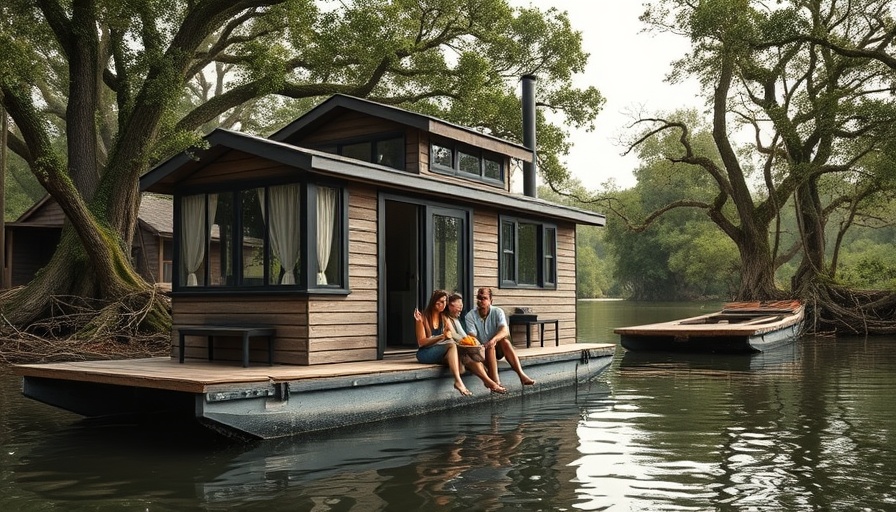
Rediscovering Joy in Retirement: Navigating the Emptiness
Retirement is often regarded as a period of freedom and relaxation, but many find themselves feeling lost and stuck in what we've come to understand as "retirement drift." If you've recently retired or are nearing that stage and feel drained, unmotivated, or even guilty for not feeling fulfilled, you're not alone. Many people experience a sense of loneliness and boredom in this new phase of life, transforming what was supposed to be blissful into something unexpectedly challenging. Whether it's the quietness after leaving a bustling career or the endless leisure time that seems overwhelming, facing these feelings can be daunting.
In 'What To Do When You Feel Like Doing Nothing (Unmotivated, Burnt Out, Unhappy)', the discussion dives into the challenges often faced in retirement, and we're breaking down its key ideas while adding our own perspective.
In a heartfelt video discussion, the hosts reveal how to combat these feelings with nine actionable steps to reignite the spark that brings joy and energy back into life. Their stories showcase the commonality of navigating unfulfilled days and the need for purpose after career-induced camaraderie fades away.
Understanding "Retirement Drift" and Its Impact
The concept of "retirement drift" covers a spectrum of emotional ups and downs that come unexpectedly, as retirees may not realize their energy and motivation are waning. Like the example of someone feeling drained while grocery shopping, many retirees suddenly grapple with the reality of evening routines devoid of connections. You may have transitioned from lively conversations at work to echoing silence at home. This transition can silently trap many individuals in monotony.
Moreover, our earlier lifestyles offered built-in structures that fostered social interactions—a quick coffee break here, a lunch with colleagues there. The shift to individualistic routines can lead to a startling realization of loneliness. As a retired resident of Louisiana adjusting to this new chapter, the key lies in recognizing and addressing these feelings without judgment.
The Role of Energy Management for a Fulfilling Retirement
The hosts of the discussed video assert that every retiree needs to be intentional about their energy. Unmotivated feelings aren't failures; they're simply indications that something needs adjusting. Establishing a daily rhythm through scheduled activities can make a significant difference. Create anchor moments throughout your day to provide a sense of structure that counteracts the allure of idleness.
For instance, engaging in morning rituals like journaling, exercise, or breakfast can serve as anchors, leading to a boost in overall energy levels. Tracking energy enhancements while reflecting on which activities invigorate or drain can be a powerful tool for gaining insights into personal wellbeing.
Facing the Challenge of Endless Leisure
In the age of unlimited vacation days at workplaces, one could argue that retirement translates to ample leisure time, but it's not always as straightforward. The newfound freedom may cause a paradox where the lack of structure can lead to lethargy. Thus, it becomes essential to break the cycle of lifeless leisure by actively scheduling activities that inspire and engage, reminiscent of joyful past interactions.
Designing Your Tomorrow, Tonight
One practical approach discussed in the video is designing your day before it unfolds. Take time the night before to plan out essential tasks for the upcoming day, whether it's having a workout outfit laid out or a grocery list prepared. Fostering this sense of organization helps diminish feelings of overwhelm and boosts excitement for a fulfilling day ahead. Having clarity about what the next day holds allows retirees to wake with purpose and anticipation.
Compassionate Self-Reflection
Understanding one’s feelings without criticism is pivotal. When pondering why you feel unmotivated or bored, reframe those inquiries from a place of compassion. Ask: “What can I learn from this?” Seeking answers rather than criticizing oneself leads to uncovering new experiences. Engaging with friends, exploring new hobbies, or even diving into books can rejuvenate your spirit and nurture connection. This introspective journey is paramount to a graceful adjustment into retirement.
Grounding Yourself with Nature
Nature has inherent healing energies. Stepping outside—whether for 10 minutes of sunlight or the joy of gardening—unlocks emotional and physical vitality. The simple act of grounding oneself by walking barefoot on grass can reestablish a refreshing connection with the world outside. These small, yet significant actions, help shift our focus from inward feelings of stagnation to the vibrant energy that nature exudes.
Creating, Connecting, and Fostering Curiosity
Retirement can feel like a blank canvas, and what you fill it with shapes your experience. Whether it's trying your hand at cooking, you could always order from your favorite local eatery. Make creations around your kitchen or engage a friend in a fun cooking session. Explore new documentaries or delve into hobbies from your past. Keeping curiosity alive enriches your life experience and can even lead to newfound friendships with like-minded individuals in classes or clubs.
Don’t Hesitate to Reach Out for Support
The challenges of retirement drift can indeed feel overwhelming, but it is vital to acknowledge these feelings and seek support when necessary. Open up to family, friends, or even professional counselors. Sharing your struggles can lead to valuable advice or simply an understanding ear, pushing you toward better days ahead. The resources are abundant, and learning to embrace these moments of change is part of the journey.
Seize the Moment
If you find that certain feelings resonate with you, it's time to take action. Engage with these nine insights to navigate the complexities of your retirement phase. Remember that the pursuit of fulfillment is not about sudden leaps but about small, consistent steps toward rediscovering joy and connection. Retirement can be the greatest phase of your life; it’s all about how you choose to approach it.
 Add Row
Add Row  Add
Add 



Write A Comment